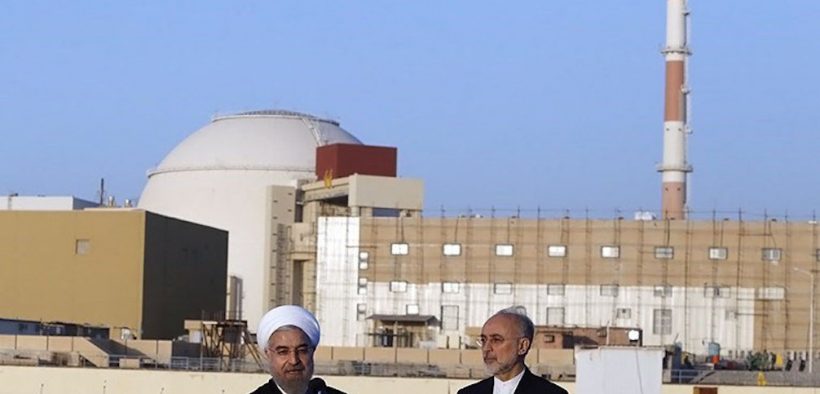Iran Threatens to Fully Quit Global Nuclear Non-Proliferation Treaty

Iran is threatening to be only the second country – North Korea being the first – to withdraw from the landmark 1968 Nuclear Non-Proliferation Treaty.
On Monday, January 20, Iran’s Foreign Minister announced that they will leave the international Nuclear Non-Proliferation Treaty (NPT) if European participants bring Iran to the United Nations Security Council (UNSC) over disputes related to the 2015 Iran Nuclear Deal formally known as the Joint Comprehensive Plan of Action (JCPoA).
Iran’s announcement was in response to a January 14 statement from the Foreign Ministers of France, Germany, and the United Kingdom. The joint statement condemned Iran’s decision to reduce its compliance to the JCPoA, taking the first step toward imposing sanctions on Iran and indicating possible escalation to the U.N.S.C.
Layers of Nuclear Agreements
The NPT was created in 1968 and aims to “prevent the spread of nuclear weapons and weapons technology.” 190 countries are currently signatories. Israel, India, and Pakistan never signed and in 2003 North Korea become the only country to withdraw. The NPT is the largest nuclear agreement and is considered the foundation of international nuclear policy.
Other countries have created their own nuclear agreements over the years. In 2015 Iran, the U.S., China, and several European countries negotiated the JCPoA. The agreement set limits on the types of nuclear material that Iran can possess, the number of centrifuges authorized, reactor types, and more. It also included guidelines on the sanctions and embargos to be imposed by the European Union, the US and the UN if Iran does not comply with the agreement.
In 2018 President Trump decided to withdraw the US from the agreement. Man-made uranium particles were discovered in Iran in November of 2019 at a previously undisclosed site. Additionally, Iran announced in July of 2019 it was enriching uranium beyond limits set by the JCPoA, indicating the country was slowly pulling away from its JCPoA commitments.
On January 5, after the US killed Iranian General Soleimani, Iran opted to withdraw completely from the JCPoA. The move prompted the European signatories of the JCPoA to issue the joint statement and potentially escalate the situation to the UN Security Council. Iran’s leadership has indicated that they may be willing to create a new deal but not under the current conditions.
What Happens if Iran Leaves the NPT?
The NPT has mechanisms allowing for a country to withdraw if they feel that their sovereignty is under threat. Iran could claim, as North Korea did, that the U.S.’ recent actions have threatened them and follow the procedures to withdraw, in which case the UN might not have any recourse under the terms of the NPT. However, if Iran fails to satisfy the terms of the withdrawal they could be subject to additional economic and potentially military actions by the UN.
However Iran withdraws from the NPT they will no longer be subject to the safeguards system that the International Atomic Energy Agency (IAEA) uses to verify compliance. In other words, the UN would no longer be able to monitor the type of nuclear activity going on in Iran.
A December 2019 report by the Congressional Research Service estimated that Iran could potentially develop nuclear weapons in a timeframe of one year. The estimate included three months to create enough weapons-grade highly enriched uranium. The report notes that the IAEA would detect any attempts by Iran to create a weapon. However, if Iran leaves the NPT, they are no longer subject to IAEA oversight. Theoretically, if uranium enrichment began last November and Iran leaves the NPT soon, they could have a weapon in close to nine months.
Whether or not Iran leaves the NPT, they are likely to face sanctions for their withdrawal from the JCPoA.
A Test of the UN
The UN’s legitimacy and effectiveness as a governing body in the international arena are called into question by the mere ongoing existence of the problems it is supposed to solve such as war, hunger, and displaced people. Iran’s threat to leave the NPT if their case is referred to the Security Council poses a difficult challenge to the agency.
If the case is referred and Iran follows through on leaving the NPT, then an already tense international situation will be further destabilized. However, if Europe or the UN agree to Iran’s threats and opt not to have the Security Council act on the matter then the authority of the UN is also challenged and could be somewhat diminished.
If European countries are able to negotiate a new agreement with Iran rather than send the matter to the Security Council that would likely create the best possible outcome, but that depends on both sides finding conditions they can agree on, which appears not possible at the moment.















